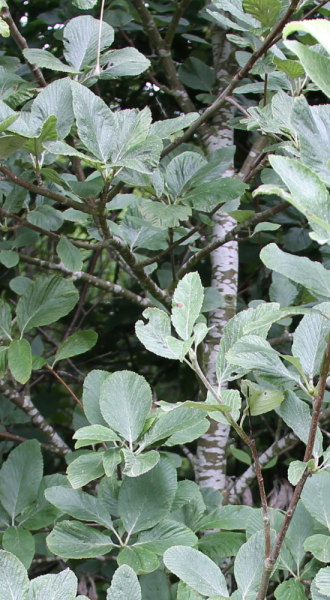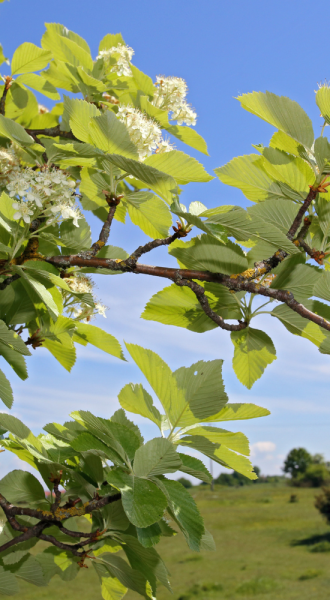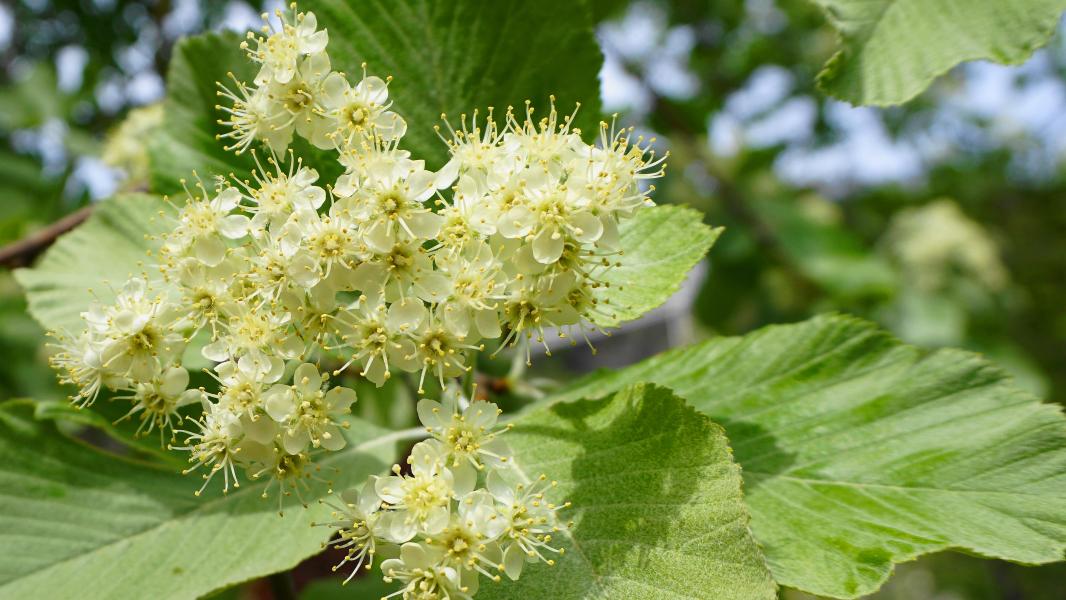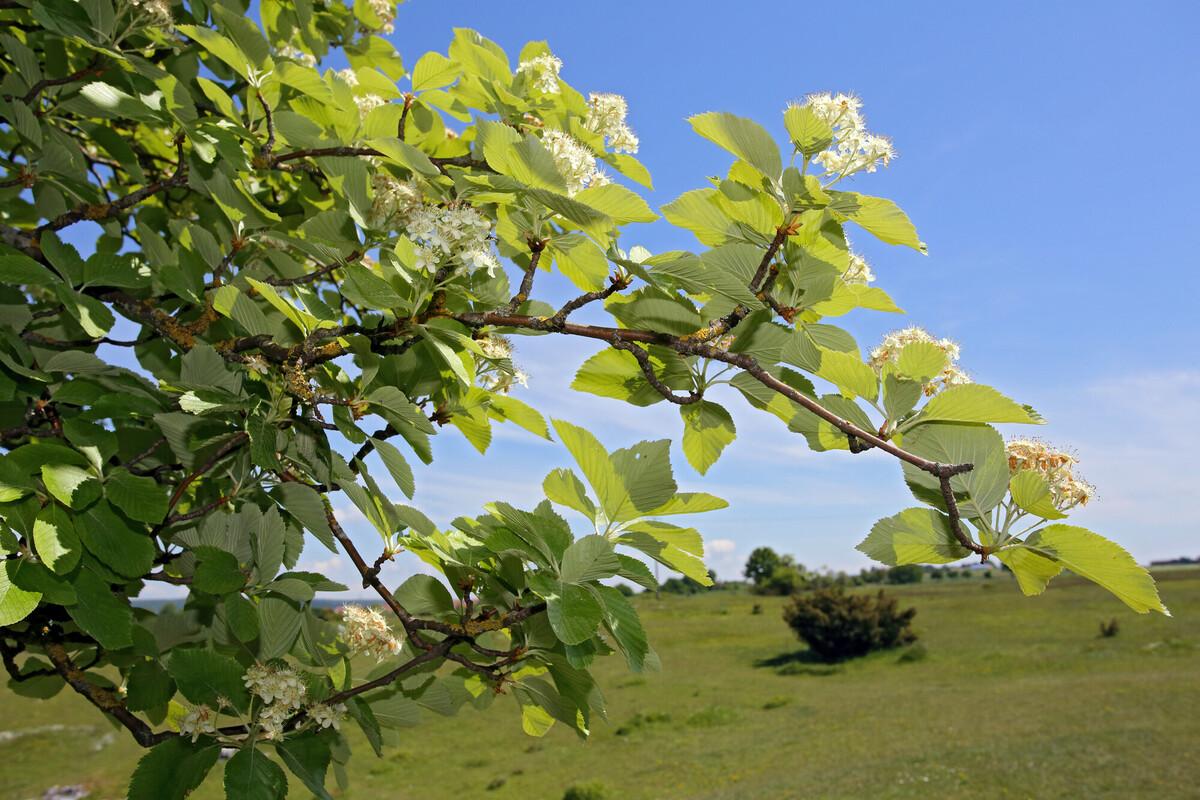Species Name: Sorbus aria
The whitebeam is a deciduous tree native to southern England, commonly planted in gardens and parks but a rarity in wild woodland. It can grow up to 15m tall and lives for around 70-80 years.
Whitebeam bark is smooth and grey in colour. Young shoots are hairy, with shiny red-brown buds that are found on alternate sides

Whitebeam leaves are thick. They are oval shaped, with an irregular serrated edge. The top side of the leaf is deep green and smooth to the touch, and the underside is pale and covered in white hairs that feel like felt.

Five-petalled flowers appear in May, to be pollinated by insects through the summer. Once pollinated, the flowers develop into bright red berries.

Although native to southern England, the whitebeam is found all over the country. They are rare in the wild, but can be found throughout the woodlands in the Heart of England Forest.
Anglo-Saxons were known to used whitebeam as a boundary-marker. Due to its believed magical properties, whitebeam is used to make wands and staffs.
Chairs, beams, cogs and wheels were all traditionally made from whitebeam wood. This is because the wood is hard and fine-grained, making it easy to work with.
The caterpillars of several moths feed on the whitebeam’s leaves. Many species of birds feed on the berries, and pollinators are attracted by the nectar produced by the flowers.
Although whitebeam is sometimes known as “common whitebeam”, the tree is not common at all.
3% of the trees we are planting in the Forest this season are whitebeam trees.




